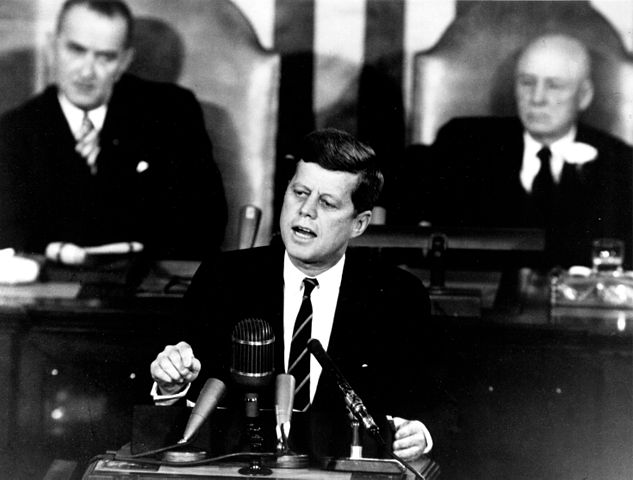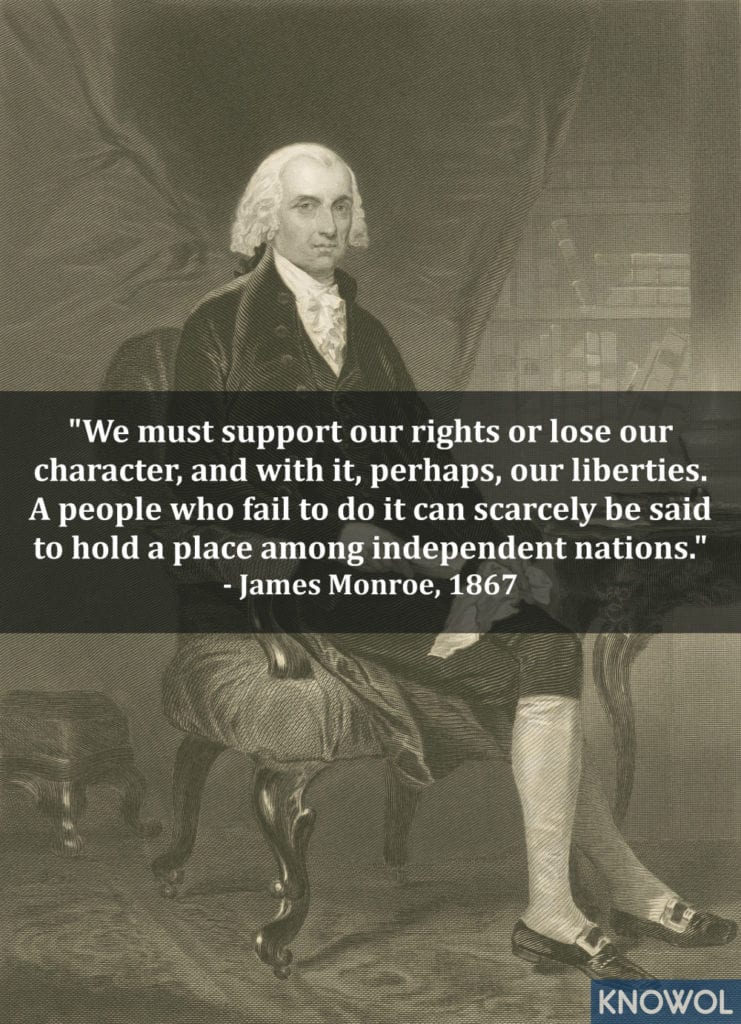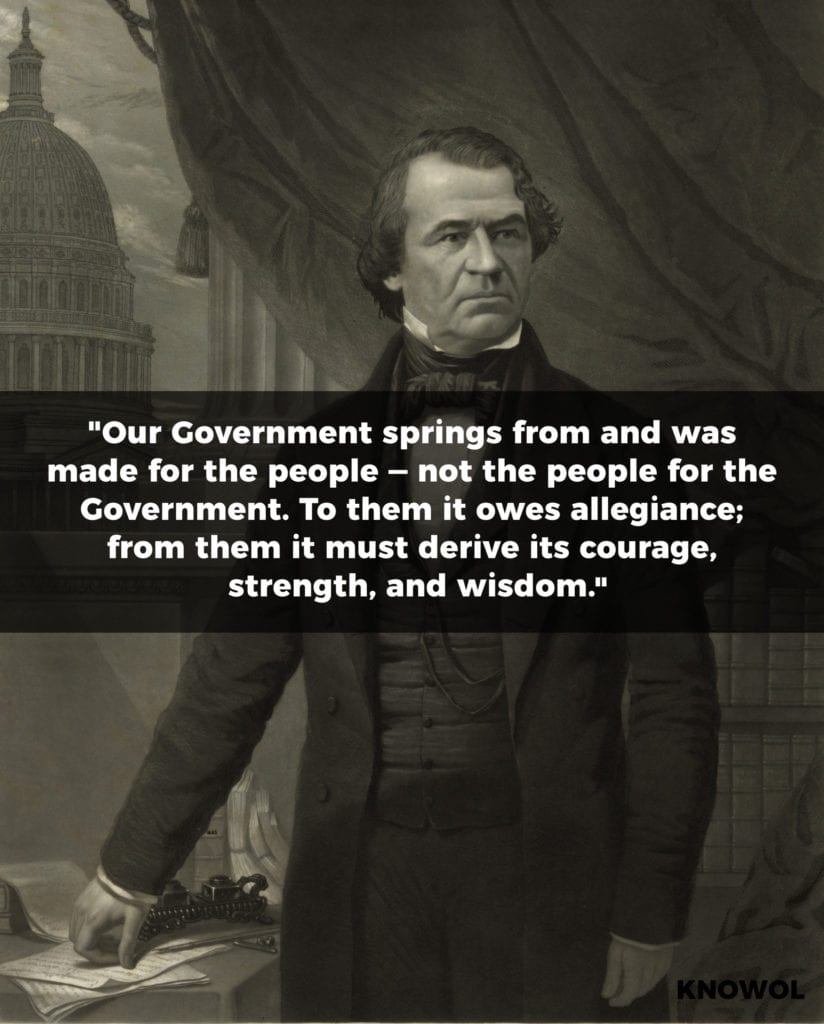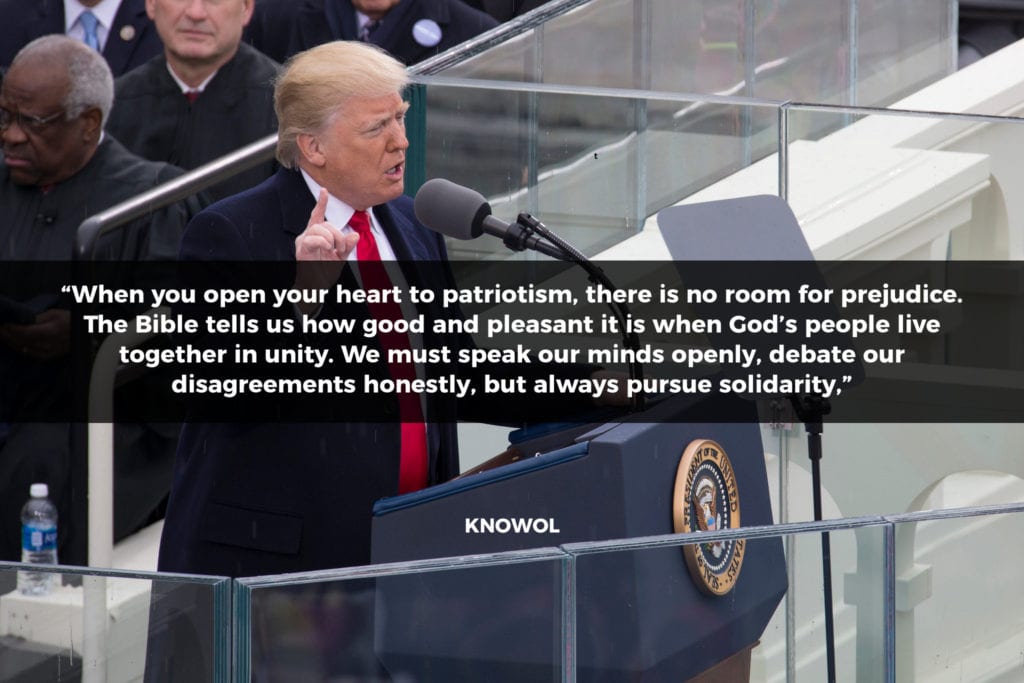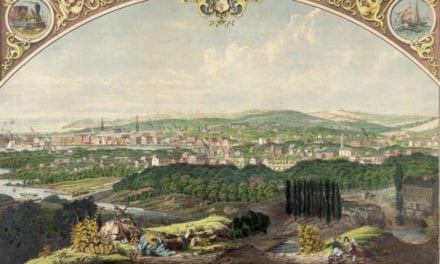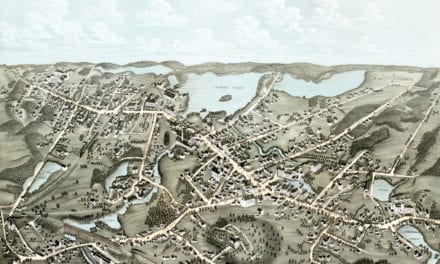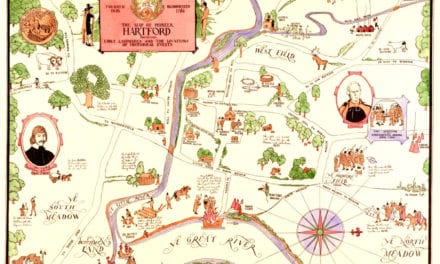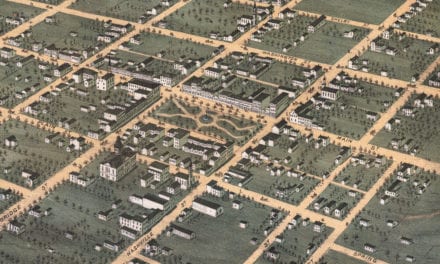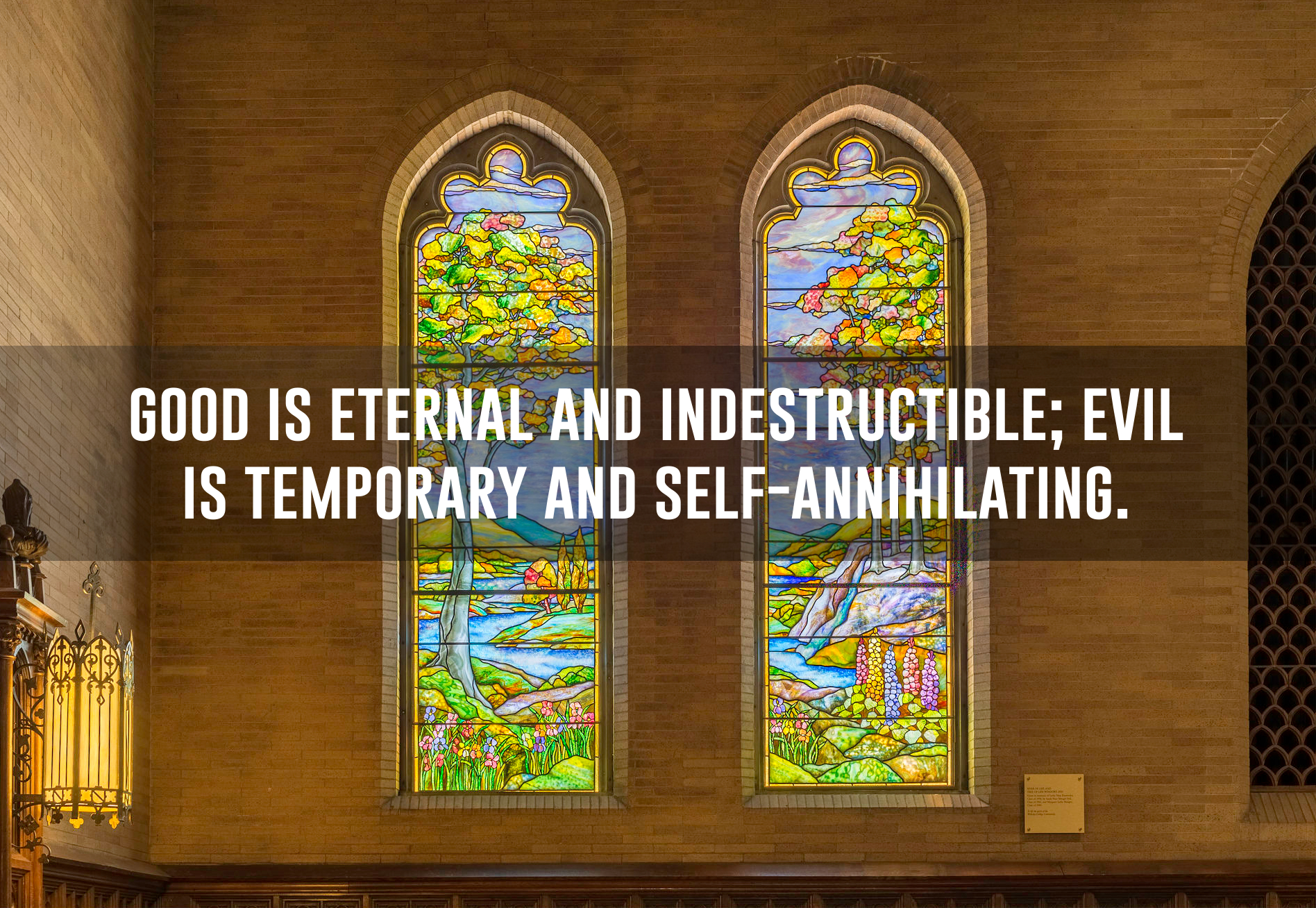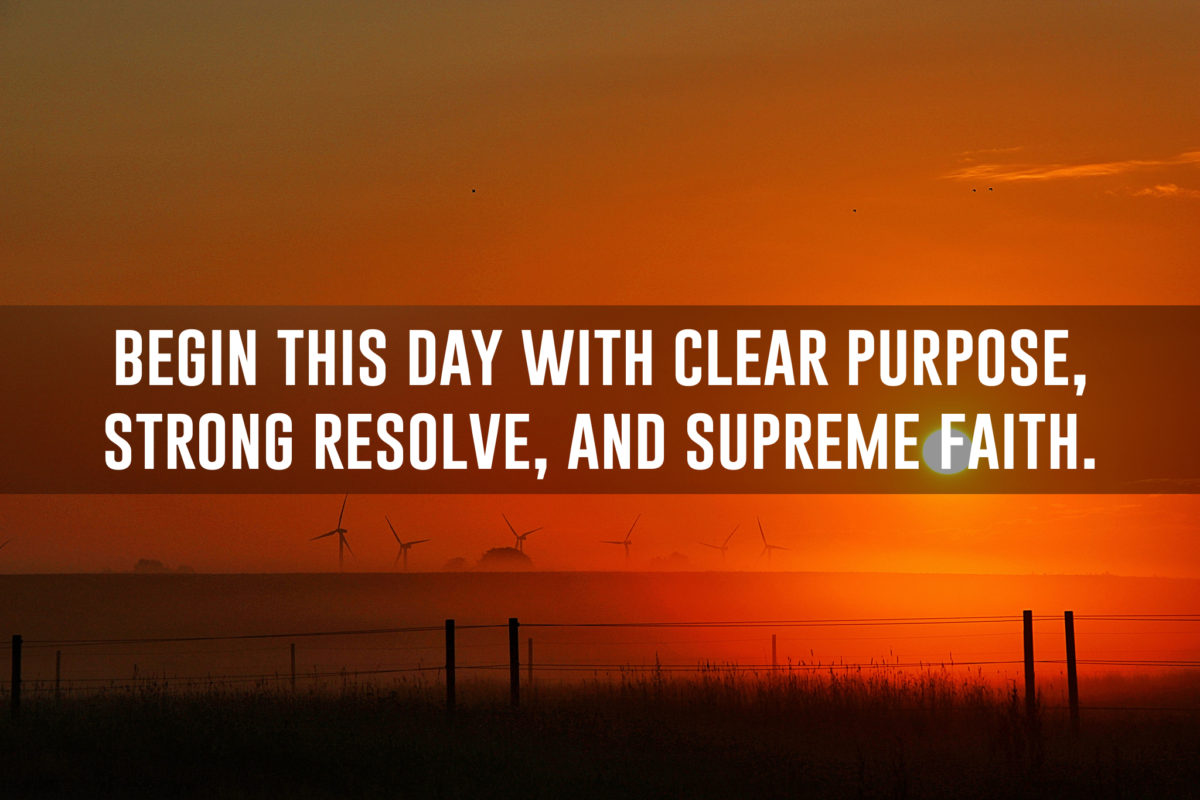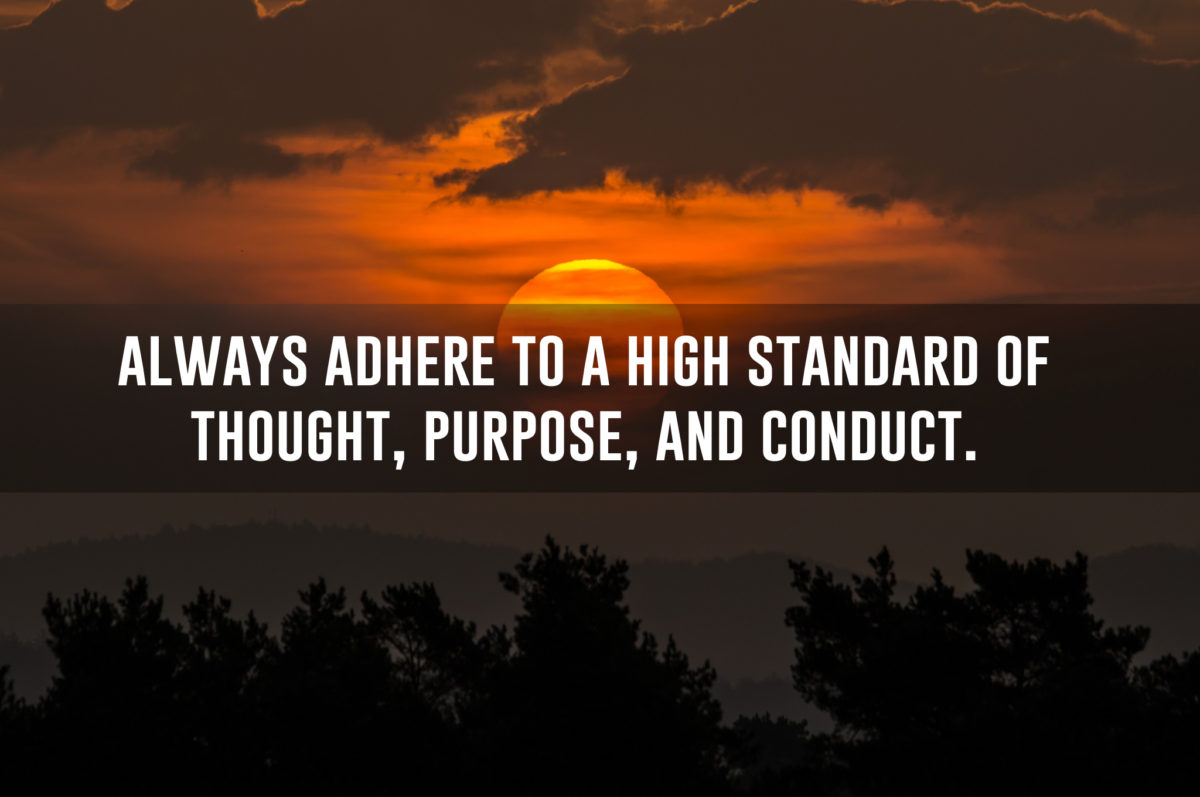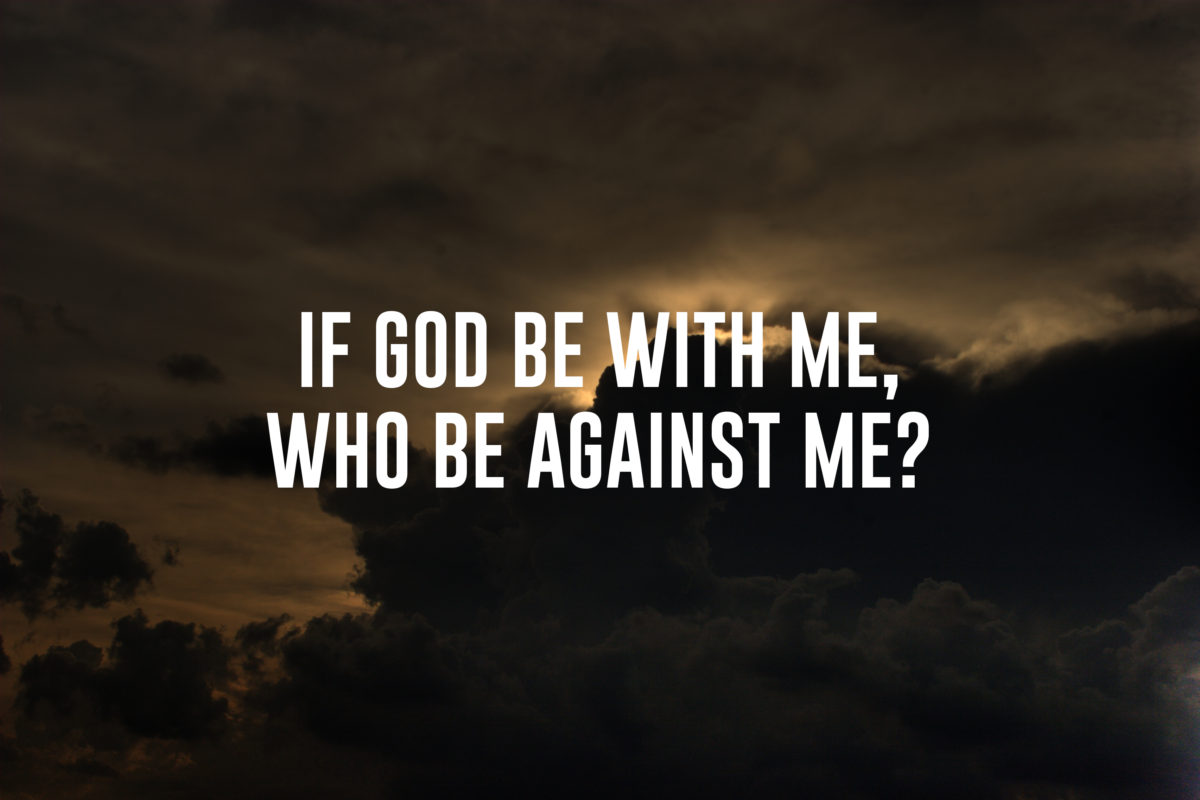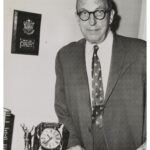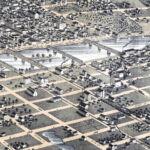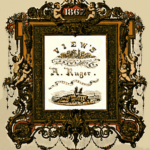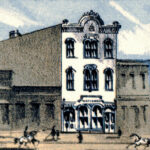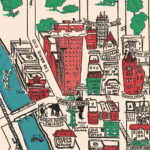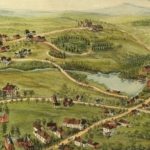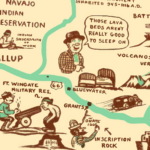This series of patriotic quotes comes from the writings and speeches of the 45 Presidents of the United States. Each quote has been fully vetted and reputable sources are available under each quote.
1. George Washington
“Observe good faith and justice towards all Nations; cultivate peace and harmony with all. Religion and Morality enjoin this conduct; and can it be, that good policy does not equally enjoin it?”
Source: Washington’s Farewell Address, September 17, 1796.
2. John Adams
“There is Danger from all Men. The only Maxim of a free Government, ought to be to trust no Man living, with Power to endanger the public Liberty.”
Source: Notes for a speech in Braintree, MA, Spring, 1772.
3. Thomas Jefferson
“I hold it that a little rebellion now and then is a good thing, and as necessary in the political world as storms in the physical.
Unsuccessful rebellions indeed generally establish the incroachments on the rights of the people which have produced them. An observation of this truth should render honest republican governors so mild in their punishment of rebellions, as not to discourage them too much.
It is a medicine necessary for the sound health of government.”
Source: Letter from Thomas Jefferson to James Madison, January 30, 1787.
4. James Madison
“A popular Government, without popular information, or the means of acquiring it, is but a Prologue to a Farce or a Tragedy; or, perhaps both.
Knowledge will forever govern ignorance: And a people who mean to be their own Governors, must arm themselves with the power which knowledge gives.“
Source: Letter from James Madison to W. T. Barry, August 4, 1822.
5. James Monroe
“We must support our rights or lose our character, and with it, perhaps, our liberties. A people who fail to do it can scarcely be said to hold a place among independent nations.
National honor is national property of the highest value. The sentiment in the mind of every citizen is national strength. It ought therefore to be cherished.”
Source: The People the Sovereigns, James Monroe, 1867.
6. John Quincy Adams
“Her glory is not dominion, but liberty. Her march is the march of mind. She has a spear and a shield; but the motto upon her shield is Freedom, Independence, Peace. This has been her declaration: this has been, as far as her necessary intercourse with the rest of mankind would permit, her practice.” (On America)
Source: Speech delivered at the request of the committee of arrangements for celebrating the anniversary of Independence, July 4, 1821.
7. Andrew Jackson
“It is to be regretted that the rich and powerful too often bend the acts of government to their selfish purposes. Distinctions in society will always exist under every just government. Equality of talents, of education, or of wealth can not be produced by human institutions.
In the full enjoyment of the gifts of Heaven and the fruits of superior industry, economy, and virtue, every man is equally entitled to protection by law; but when the laws undertake to add to these natural and just advantages artificial distinctions, to grant titles, gratuities, and exclusive privileges, to make the rich richer and the potent more powerful, the humble members of society-the farmers, mechanics, and laborers-who have neither the time nor the means of securing like favors to themselves, have a right to complain of the injustice of their Government.
There are no necessary evils in government. Its evils exist only in its abuses. If it would confine itself to equal protection, and, as Heaven does its rains, shower its favors alike on the high and the low, the rich and the poor, it would be an unqualified blessing. In the act before me there seems to be a wide and unnecessary departure from these just principles.
Source: President Jackson’s veto message regarding the Bank of the United States; July 10, 1832.
8. Martin Van Buren
“There is a power in public opinion in this country, and I thank God for it; for it is the most honest and best of all powers, which will not tolerate an incompetent or unworthy man to hold in his weak or wicked hands, the lives and fortunes of his fellow-citizens.
This power operates alike upon the government and the incumbent. The former dare not disregard it, and the latter can have no adequate wish that they should, when he once knows the estimation in which he is held.
This public ordeal, therefore, is of great value; in my opinion, much more so than what has, with some propriety, been called the scare-crow of the constitution, the power of impeachment.”
Source: Martin Van Buren’s Senate speech on the judiciary, April 7, 1826
9. William Henry Harrison
“The people are the best guardians of their own rights and it is the duty of their Executive to abstain from interfering in or thwarting the sacred exercise of the law-making functions of their Government.”
Source: General Harrison’s Speech at Dayton, Ohio, Sept. 10, 1840.
10. John Tyler
“If we find ourselves increasing beyond example in numbers, in strength, in wealth, in knowledge, in everything which promotes human and social happiness, let us ever remember our dependence for all these on the protection and merciful dispensations of Divine Providence.”
Source: John Tyler’s First Annual Message, December 7, 1841.
11. James K. Polk
“There is more selfishness and less principle among members of Congress, as well as others, than I had any conception of, before I became President of the U.S.”
Source: Diary Entry, December 16, 1846.
12. Zachary Taylor
“I have no private purpose to accomplish, no party projects to build up, no enemies to punish – nothing to serve but my country.”
Source: Letter to J.S. Allison, April 22, 1848.
13. Millard Fillmore
“Let us remember amidst all our grief and disappointments that there is an unerring Providence that governs this world, and that no man is indispensable to a nation’s life; and let us look hopefully for the rainbow of peace that will surely succeed the storm if we do our own duty.”
Source: Millard Fillmore Papers, January 1, 1907, pp. 108.
14. Franklin Pierce
“I can express no better hope for my country than that the kind Providence which smiled upon our fathers may enable their children to preserve the blessings they have inherited.”
Source: Franklin Pierce, Inaugural Address, March 4, 1853.
15. James Buchanan
“Liberty, sir, is a precious gift, which can never long be enjoyed to any people, without the most watchful jealousy. It is Hesperian fruit, which the ever-wakeful jealousy of the people can alone preserve.
The very possession of power has a strong – a natural tendency, to corrupt the heart. If the government has been administered upon correct principles, an intelligent people will do justice to their rulers; if not they will take care that every abuse shall be corrected.”
Source: James Buchanan, Congressional Debate on Retrenchment, February 4, 1828
16. Abraham Lincoln
“The people — the people — are the rightful masters of both congresses, and courts — not to overthrow the constitution, but to overthrow the men who pervert it.”
Source: Abraham Lincoln, Notes for Speech in Kansas and Ohio (pp. 2), September 16-17, 1859
17. Andrew Johnson
“Our Government springs from and was made for the people — not the people for the Government. To them it owes allegiance; from them it must derive its courage, strength, and wisdom.
But while the Government is thus bound to defer to the people, from whom it derives its existence, it should, from the very consideration of its origin, be strong in its power of resistance to the establishment of inequalities.
Monopolies, perpetuities, and class legislation are contrary to the genius of free government, and ought not to be allowed. Here there is no room for favored classes or monopolies; the principle of our Government is that of equal laws and freedom of industry.
Wherever monopoly attains a foothold, it is sure to be a source of danger, discord, and trouble. We shall but fulfill our duties as legislators by according “equal and exact justice to all men,” special privileges to none.”
Source: Andrew Johnson, First Annual Message, December 4, 1865
18. Ulysses S. Grant
“Though I have been trained as a soldier, and participated in many battles, there never was a time when, in my opinion, some way could not be found to prevent the drawing of the sword. I look forward to an epoch when a court, recognized by all nations, will settle international differences, instead of keeping large standing armies, as they do in Europe.”
Source: General Grant, in an interview with the Pennsylvania Peace society, as quoted in The Herald of Peace on International Arbitration, August 1st, 1885, p. 269
19. Rutherford B. Hayes
“Education is our greatest present national concern. General education is the best preventive of the evils now most dreaded. In the civilized countries of the world, the question is how to distribute most generally and equally the property of the world. As a rule, where education is most general the distribution of property is most general….
As knowledge spreads, wealth spreads. To diffuse knowledge is to diffuse wealth. To give all an equal chance to acquire knowledge is the best and surest way to give all an equal chance to acquire property.”
Source: Rutherford Birchard Hayes, Diary Entry, May 15, 1878 (Via Rutherford B. Hayes Presidential Library & Museums Digital Collection)
20. James A. Garfield
“Be fit for more than the thing you are now doing. Let everyone know that you have a reserve in yourself,— that you have more power than you are now using. If you are not too large for the place you occupy, you are too small for it.”
Source: “Elements of Success”, as published in President Garfield and education: Hiram college memorial (1882), compiled by B. A. Hinsdale, p. 327
21. Chester A. Arthur
“The wisdom of our fathers, foreseeing even the most dire possibilities, made sure that the Government should never be imperiled because of the uncertainty of human life. Men may die, but the fabrics of our free institutions remain unshaken.”
Source: Address Upon Assuming the Office of the President (September 22, 1881). The speech was given in response to James A. Garfield’s assassination when Chester Arthur assumed the role of President.
22. Grover Cleveland
“Public officers are the servants and agents of the people, to execute the laws which the people have made, and within the limits of a constitution which they have established.
We may, I think, reduce to quite simple elements the duty which public servants owe, by constantly bearing in mind that they are put in place to protect the rights of the people, to answer their needs as they arise, and to expend for their benefit the money drawn from them by taxation.”
Source: Letter accepting the nomination for governor of New York (October 1882), as quoted in The Presidents of the United States 1789-1894, published in 1895 (pp. 470).
23. Benjamin Harrison
“God forbid that the day should ever come when, in the American mind, the thought of man as a ‘consumer’ shall submerge the old American thought of man as a creature of God, endowed with ‘unalienable rights’.”
Source: Views of an Ex-president By Benjamin Harrison, 1901, (pp. 221).
24. Grover Cleveland
“We proudly call ours a government by the people. It is not such when a class is tolerated which arrogates to itself the management of public affairs, seeking to control the people instead of representing them.”
Source: Grover Cleveland’s Letter accepting the nomination for President. August 18, 1884.
25. William McKinley
“Those remaining grow dearer to us, and from them and the memory of those who have departed, generations yet unborn will draw their inspiration and gather strength for patriotic purpose. A great life never dies. Great deeds are imperishable; great names immortal.”
Source: Address at the Dedication of the Grant Monument, New York, April 27, 1897
26. Theodore Roosevelt
“To announce that there must be no criticism of the President, or that we are to stand by the President, right or wrong, is not only unpatriotic and servile, but is morally treasonable to the American public.”
Source: Theodore Roosevelt Essay, “SEDITION, FREE PRESS, AND PERSONAL RULE”. May 7, 1918.
27. William Howard Taft
“I am in favor of helping the prosperity of all countries because, when we are all prosperous, the trade with each becomes more valuable to the other.”
Source: Address at Hotel Fairmont at a Banquet Held By Citizens of San Francisco, October 5, 1909.
28. Woodrow Wilson
“The Constitution itself is not a complete system; it takes none but the first steps in organization. It does little more than lay a foundation of principles. It provides with all possible brevity for the establishment of a government having, in several distinct branches, executive, legislative, and judicial powers.
It vests executive power in a single chief magistrate, for whose election and inauguration it makes carefully definite provision, and whose privileges and prerogatives it defines with succinct clearness; it grants specifically enumerated powers of legislation to a representative Congress, outlining the organization of the two houses of that body and definitely providing for the election of its members, whose number it regulates and the conditions of whose choice it names; and it establishes a Supreme Court with ample authority of constitutional interpretation, prescribing the manner in which its judges shall be appointed and the conditions of their official tenure.
Here the Constitution’s work of organization ends, and the fact that it attempts nothing more is its chief strength.”
Source: Congressional Government: A Study in American Politics, Woodrow Wilson
29. Warren G. Harding
“We are resolved to liberate the soul of American life and prove ourselves an American people in fact, spirit, and purpose, and consecrate ourselves anew and everlastingly to human freedom and humanity’s justice.”
Source: The Republic Must Awaken (April 4, 1917)
30. Calvin Coolidge
“Works which endure come from the soul of the people. The mighty in their pride walk alone to destruction. The humble walk hand in hand with Providence to immortality. Their works survive.”
Source: Calvin Coolidge’s Flag Day Speech, May 26, 1919.
31. Herbert Hoover
“The American people from bitter experience have a rightful fear that great business units might be used to dominate our industrial life and by illegal and unethical practices destroy equality of opportunity.”
Source: Campaign speech in New York on October 22, 1928.
32. Franklin D. Roosevelt
“All work undertaken should be useful — not just for a day, or a year, but useful in the sense that it affords permanent improvement in living conditions or that it creates future new wealth for the Nation.”
Source: State of the Union Address in 1935.
33. Harry S. Truman
“When you get to be President, there are all those things, the honors, the twenty-one gun salutes, all those things. You have to remember it isn’t for you. It’s for the Presidency.”
Source: Plain Speaking: An Oral Biography of Harry S. Truman (1974), pp. 228.
34. Dwight D. Eisenhower
“Down the long lane of the history yet to be written America knows that this world of ours, ever growing smaller, must avoid becoming a community of dreadful fear and hate, and be instead, a proud confederation of mutual trust and respect. Such a confederation must be one of equals.”
Source: Dwight Eisenhower’s Military-Industrial Complex Speech, 1961.
35. John F. Kennedy
“I believe in an America that is on the march – an America respected by all nations, friends and foes alike – an America that is moving, doing, working, trying – a strong America in a world of peace.
That peace must be based on world law and world order, on the mutual respect of all nations for the rights and powers of others and on a world economy in which no nation lacks the ability to provide a decent standard of living for all of its people.
But we cannot have such a world, and we cannot have such a peace, unless the United States has the vitality and the inspiration and the strength.
If we continue to stand still, if we continue to lie at anchor, if we continue to sit on dead center, if we content ourselves with the easy life and the rosy assurances, then the gates will soon be open to a lean and hungry enemy.”
Source: Speech by Senator Kennedy at Convention Hall in Philadelphia, PA on October 31, 1960.
36. Lyndon B. Johnson
“Until justice is blind to color, until education is unaware of race, until opportunity is unconcerned with the color of men’s skins, emancipation will be a proclamation but not a fact.”
Source: Remarks at Gettysburg on Civil Rights (May 30, 1963)
37. Richard Nixon
“What kind of nation we will be, what kind of world we will live in, whether we shape the future in the image of our hopes, is ours to determine by our actions and our choices.”
Source: Richard Nixon’s First Inaugural Address. January 20, 1969.
38. Gerald Ford
“History and experience tells us that moral progress cannot come in comfortable and in complacent times, but out of trial and out of confusion.”
Source: State of the Union Address (January 19, 1975).
39. Jimmy Carter
“Human rights is the soul of our foreign policy. And I say this with assurance, because human rights is the soul of our sense of nationhood.”
Source: Universal Declaration of Human Rights Remarks at a White House Meeting Commemorating the 30th Anniversary of the Declaration’s Signing. December 6, 1978.
40. Ronald Reagan
“Freedom is never more than one generation away from extinction.
We didn’t pass it to our children in the bloodstream. It must be fought for, protected, and handed on for them to do the same, or one day we will spend our sunset years telling our children and our children’s children what it was once like in the United States where men were free.”
Source: “A Time for Choosing”, Reagan’s Republican National Convention Speech on October 27, 1964.
41. George H.W. Bush
“Our nation is the enduring dream of every immigrant who ever set foot on these shores, and the millions still struggling to be free. This nation, this idea called America, was and always will be a new world – our new world.”
Source: State of the Union Address, Jan. 31, 1990.
Image: A five year old immigrant boy named Manuel in 1911. He had been employed as a shrimp-picker since he was four years old. Behind him is a mountain of oyster shells shucked by child laborers. He didn’t understand a word of English.
42. Bill Clinton
“As we marvel at the changes of the last hundred years, we dream of what changes the next hundred, and the next thousand, will bring. And as powerful as our memories are, our dreams must be even stronger.
For when our memories outweigh our dreams we become old, and it is the eternal destiny of America to remain forever young, always reaching beyond, always becoming, as our founders pledged, a more perfect union. So we Americans must not fear change.
Instead, let us welcome it, embrace it, and create it.”
Source: “America’s Millennium” Celebration, December 31, 1999.
Picture: Bill Clinton at Manchester Central High School in New Hampshire on November 2, 2008. Photo shared under CC BY 2.0 license by Marc Nozell.
43. George W. Bush
“We will not waver; we will not tire; we will not falter, and we will not fail. Peace and Freedom will prevail. Peace and freedom will prevail. Thank you. May God continue to bless America. “
Source: George W. Bush, Address to the Nation, October 7, 2001.
44. Barack Obama
“And that’s what the young people here today and listening all across the country must take away from this day. You are America. Unconstrained by habit and convention. Unencumbered by what is, because you’re ready to seize what ought to be.
For everywhere in this country, there are first steps to be taken, there’s new ground to cover, there are more bridges to be crossed.
And it is you, the young and fearless at heart, the most diverse and educated generation in our history, who the nation is waiting to follow.”
Source: Obama’s Speech on 50th Anniversary of the Selma to Montgomery Marches. March 7, 2015.
45. Donald Trump
“When you open your heart to patriotism, there is no room for prejudice. The Bible tells us how good and pleasant it is when God’s people live together in unity. We must speak our minds openly, debate our disagreements honestly, but always pursue solidarity.”
Source: Donald Trump’s Inaugural Address, January 20, 2017

